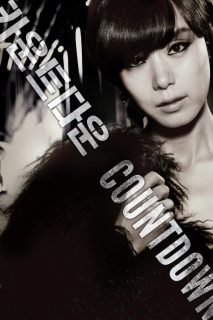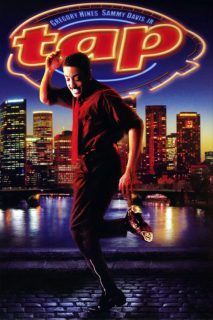
- Year: 1994
- Released: 04 Nov 1994
- Country: United Kingdom, United States
- Adwords: 1 nomination
- IMDb: https://www.imdb.com/title/tt0110722/
- Rotten Tomatoes: https://www.rottentomatoes.com/m/oleanna
- Metacritics: https://www.metacritic.com/movie/oleanna
- Available in: 720p, 1080p,
- Language: English
- MPA Rating: Not Rated
- Genre: Drama, Thriller
- Runtime: 89 min
- Writer: David Mamet
- Director: David Mamet
- Cast: William H. Macy, Debra Eisenstadt, Diego Pineda
- Keywords: based on play or musical, college student, two-hander, college professor,
 | 6.6/10 |
 | 61/100 |
 | 56% – Critics |
 | 61% – Audience |
Oleanna Storyline
A two character movie, involving a college professor, John, who is confronted by a female student, Carol, who is failing his course. The two spend a long time talking to each other, during which time John says a few things that can be taken the wrong way. After the night the two spent talking, John is slapped with a sexual harassment accusation by Carol. After more accusations from Carol, John’s career as a teacher begins to fall apart. This forces John with a choice on how to handle the situation, and the results make up for a shattering ending to the movie.
Oleanna Play trailer
Oleanna Photos



Oleanna Torrents Download
| 720p | bluray | 742.94 MB | magnet:?xt=urn:btih:866028C2487CFD33AB121C4E9875375F88AA303C | |
| 1080p | bluray | 1.42 GB | magnet:?xt=urn:btih:5F4C3F00BE610FA78B8B53C646A759D8356AE4E6 |
Oleanna Subtitles Download
| English | subtitle Oleanna.1994.720p.BluRay.x264. | |
| French | subtitle Oleanna.1994.720p.BluRay.x264. |
Oleanna Movie Reviews
Definitely Not My Favoite Mamet
Student Carol (Debra Eisenstadt) visits Professor John (William H. Macy) to discuss how she failed his course but the discussion takes an awkward turn.
Roger Ebert, who loved the play, was “astonished” to report that Oleanna was not a very good film, characterizing it as awkward and lacking in “fire and passion”. He does think the play 9and to some extent the film) makes clear how men and women can see things two different ways. He freely admits he sides with the male point of view while others have argued that the student was in the right.
Overall, I did not really care for the movie. I like Mamet and I love his dense writing, but it seemed to fall flat here. Macy is alright, but the student is annoying. She comes across as either stupid or in some way stunted. The repetition is annoying, too, as how many times must she ask about his house?
He shoulda whacked her with the chair.
“Oleanna” is a claustrophobic, dialogue-intensive, manipulative two actor pseudo-intellectual sorta-psycho-drama which shows a shrinking violet student seeking help from her professor and then turning into an emasculating pitbull. A spellbinding flick for those who don’t nitpick the script, this highly improbable story offers some serious entertainment value. The fact is, however, it would not be difficult to write a similar story for we all live in a world of push-pull communication whereby productive bilateral communication requires a desire to understand by both parties. Forsake this principle and you can manipulate a story in any direction with relative ease. No biggie but a worthy effort.
Brilliant but biased
In the cinema, David Mamet is perhaps best known for his tightly-scripted thrillers, but he was first (and still is) a playwright. His plays are generally stylised, didactic, very verbal and tend to address big conceptual issues. ‘Oleanna’, his take on political correctness, is essentially the film of a play, and at first is off-putting, resembling more a therapy session than a drama. It’s worth persevering with, and is eventually gripping and intriguing, but it also left an uneasy feeling in this viewer.
“Political correctness” (Mamet is far too intelligent to actually use this term) is a phrase that damns efforts to offset the disadvantage that minorities suffer, particularly through the use of language (a subject one can presume is close to any playwright’s heart). Those who rubbish its absurdities usually have a point, but in focusing on them, they often appear not to care for the injustices that motivate it (of course, it is logically possible to care about both the underlying cause, and the over-reaction, but many seem to worry about one of these only). ‘Oleanna’ depicts a nightmare scenario for a many a middle class male: William Macy’s professor behaves slightly unprofessionally, but scarcely wickedly (and with only the most indirect of sexual motivation), and finds his life and career ruined. The character is pretty unsympathetic, but also unquestionably innocent of the charges, and in telling his story (and even, at the end, seemingly encouraging the audience to applaud his final resort to violence), Mamet apparently reveals which injustices are most important to him. Aside from it’s unfairness, another complaint made against the strictures of political correctness are their anti-intellectualism, and Mamet also enjoys exploring this aspect. The female student who brings Macy down reminds me of Naomi Wolf when she wrote of her experiences of being harassed as a student, in that she unashamedly upholds her right to blame others for her failure to love herself. Her manifesto is that her teachers should make her understand what she wants to learn and moreover convince her of its own integral worth: not least of Macy’s crimes is a scepticism affordable, she suggests, only to those in power. Mamet deconstructs such beliefs quite brilliantly, but again, perhaps, tells only one side of the story in what is still a male-dominated world. But the film also demonstrates how true power resides in control of the discourse, something which tellingly shifts over the course of the play. Ultimately, though, it is the writer who truly controls the discourse, and however well-acted and highly thought-provoking, ‘Oleanna’ also leaves one wondering whether it is truly aimed at a real target of importance, or just a straw man. A more humorous, and maybe more honest, treatment of the same subject can be found in the first chapter of Jonathon Frantzen’s book ‘The Corrections’, which makes an interesting companion piece.



